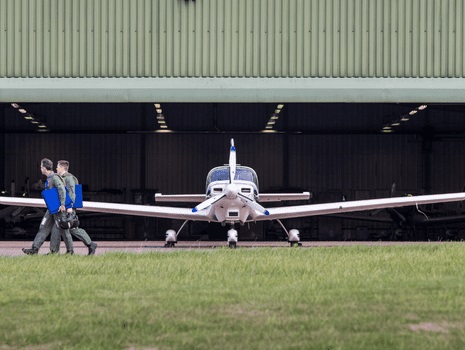Babcock renews military flying training contract with RAF

Image courtesy Babcock
This full-service partnership provides the MoD with a cost-effective way to operate flying training that is backed up by Babcock’s in-depth understanding of the military training ethos.
Operational delivery is supported by engineering expertise and detailed asset management that ensures high levels of aircraft availability to support the delivery of the flying task. By taking a whole force capability approach, Babcock supports the training of frontline aircrew, University Air Squadron cadets and Air Experience Flying for the RAF Air Cadets.
Harry Boneham, Aerospace Analyst at GlobalData, said: “The news that the MoD has renewed its LAFT2 training contract with Babcock is good but unsurprising news for the company as it’s increasingly dependent upon business from the MoD as a primary source of revenue. Babcock derived 55.5% of its global annual revenue from the MoD in FY21/22 and further revenue drawn from the UK government from rail and road infrastructure contracts. Given the closeness of the relationship between the MoD and Babcock, with the latter being the former’s second largest supplier in terms of expenditure in 2022, it is not surprising that Babcock has been successful in securing this contract renewal.
“Furthermore, it is likely that going forward, the UK will be driven to increase its spending for aviation training. There has been an emerging issue with the training of RAF fast jet pilots, derived from issues such as faults with the Rolls-Royce/Safran Adour 951 engine which powers the Hawk TMk2, as well as a lack of instructors and poor training infrastructure. These issues have accumulated to generate a backlog, reducing training pipeline capacity over the next three years. In order to rectify this issue and increase that available number of training slots and ultimately the number of RAF pilots, significant long-term investment is required. Furthermore, increased investment will allow for more attractive pilot and instructor pay packages, which will increase retention rates and prevent instructors being poached by foreign air forces, such as China.”













